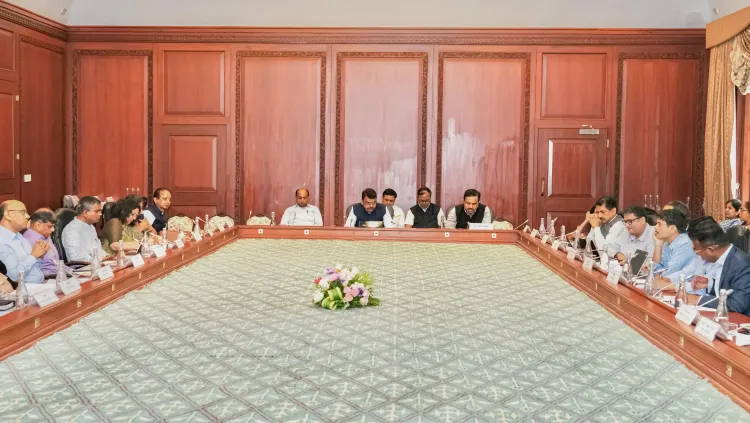How is Maha CM Planning to Reduce Industrial Licenses?

Synopsis
Key Takeaways
- Reduction of Licenses: Cutting down the number of required licenses for new industries.
- Streamlined Process: Introduction of an online AI-based permit system for faster processing.
- Single Application System: Allowing all relevant permits to be issued through one application.
- Focus on Green Industries: Easing permit requirements for environmentally friendly industries.
- Coordination Among Departments: Enhancing state-level coordination for quicker license approvals.
Mumbai, Sep 19 (NationPress) Maharashtra Chief Minister Devendra Fadnavis has instructed the administration to cut down the number of licenses necessary for establishing new industries in the state, aiming to expedite processes and enhance the ease of doing business.
During a meeting to assess the current state of business facilitation in Maharashtra, he stated, "Our state is the top destination for foreign investments in India. We are implementing reforms to transform this investment into industry swiftly. The number of licenses for new industries must be minimized to save time," he emphasized.
Chief Minister Fadnavis reiterated that the 'Ease of Doing Business' initiative aims to foster a thriving industrial environment in Maharashtra. He urged for the creation of a 'best model' for launching new industries in the state.
He suggested that the Urban Development Department should establish an online system powered by artificial intelligence for processing construction permits needed by industries. Once an application is submitted with the required documentation, the permit should be issued automatically, streamlining the process.
Fadnavis pointed out that multiple permits are often tied to various departments, and thus, there should be a system to allow entrepreneurs to submit a single application for all necessary permits. He also advocated for granting industries in the green category a reprieve from numerous permits for an extended period.
Moreover, he mentioned that a lot of industrial licenses are issued at the district level. He stressed the need for enhanced coordination among state departments to expedite license issuance at the district level.
"We are focused on fostering an industry-friendly atmosphere in the state. These reforms will attract more investments and stimulate industrial growth, helping us achieve our ambition of a $1 trillion economy. Agencies must implement these reforms diligently, assuring entrepreneurs that Maharashtra offers the quickest route to launch a business in the country," he concluded.










